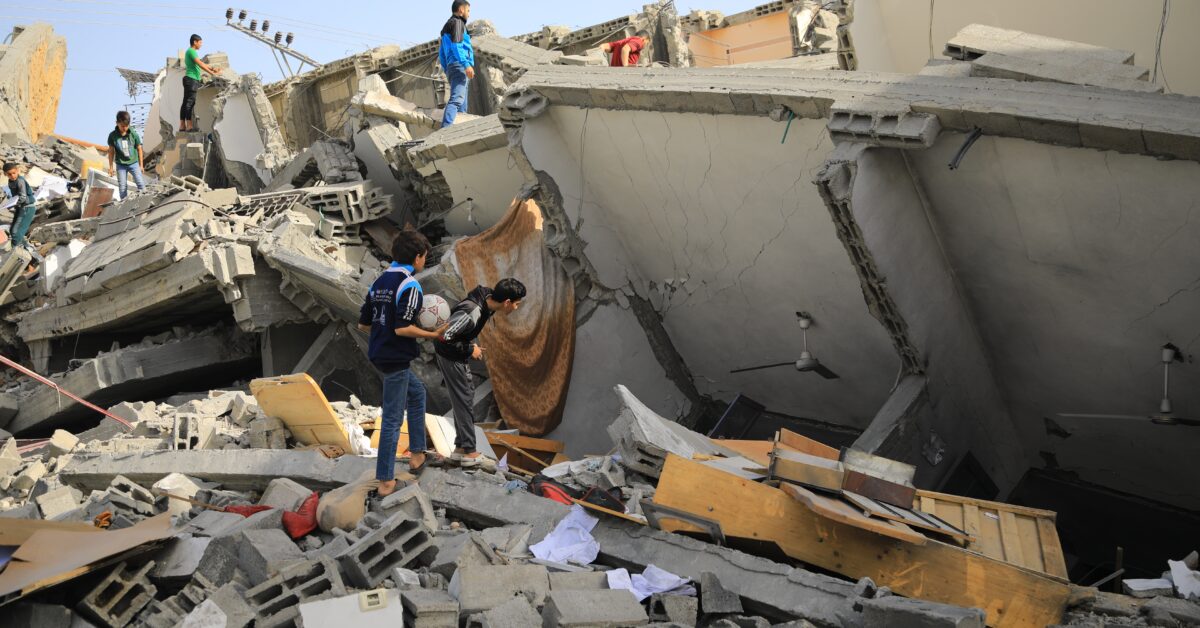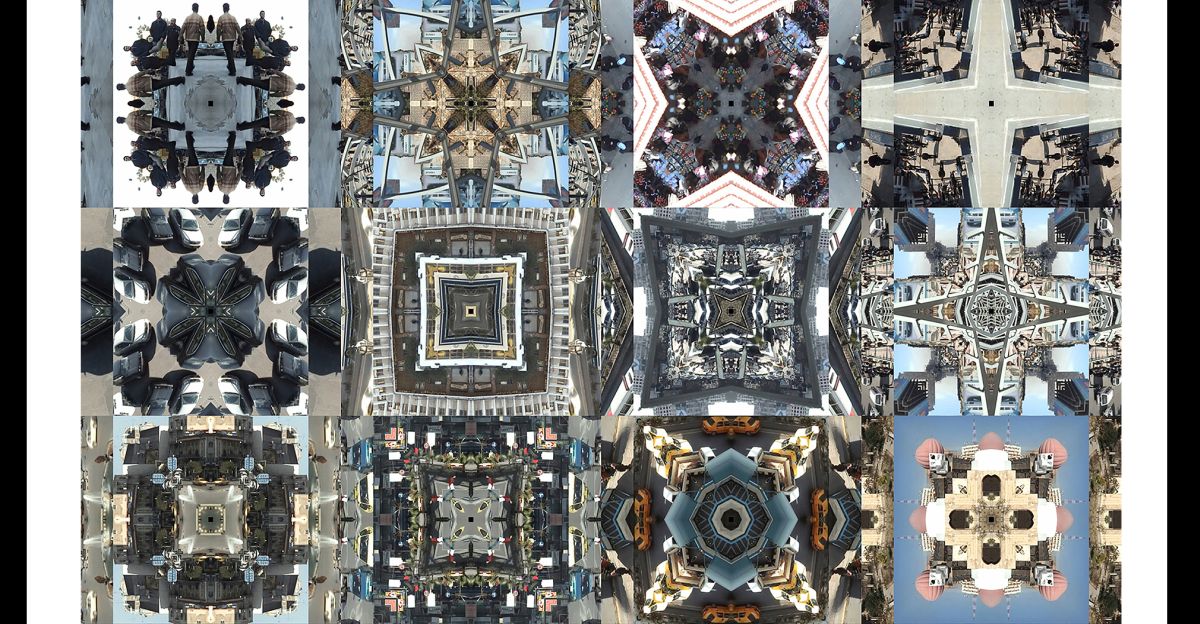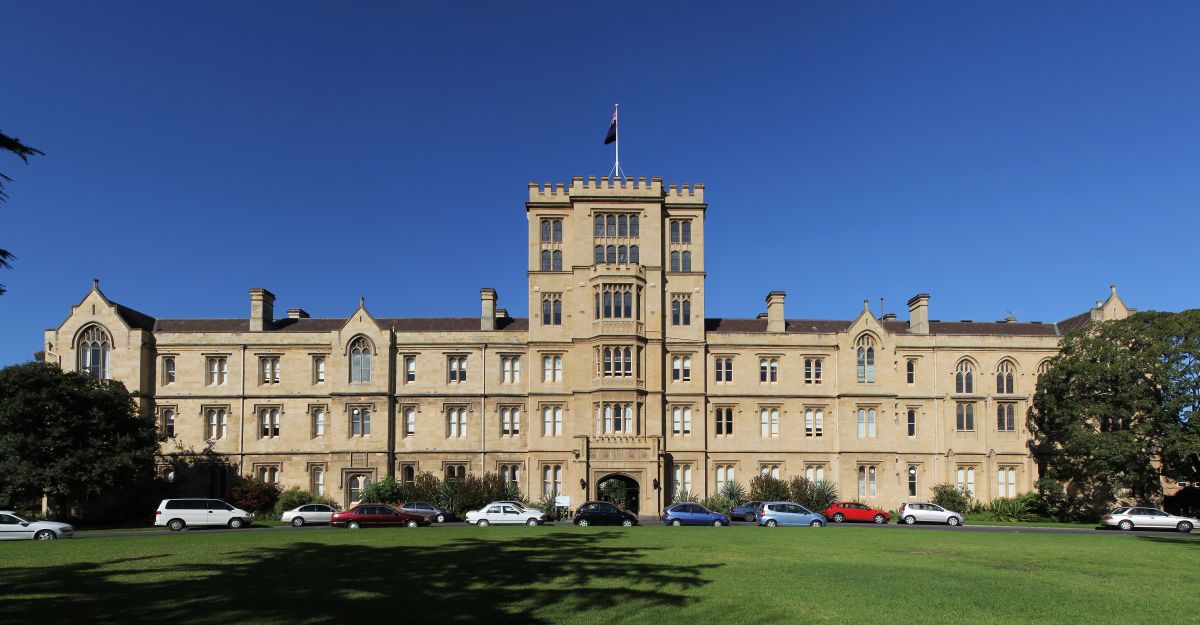Since early October, we have watched Israel perpetrate attacks of an unprecedented scale on Gaza. Their bombing campaign has aimed to destroy Palestinian lives and render it impossible for Palestinians to live in Gaza. Israel has destroyed universities and schools, cultural institutions, libraries, and archives. As historians we know this as an attack on a people’s past, present and future.
These attacks sit alongside the murder of over 20,000 people, including more than 6,150 children, with thousands of people still trapped under rubble. In a population of around 2.2 million people, close to 1 in every 100 people have been murdered. Over 36,000 people have been wounded, many gravely. More than 67 journalists have been killed, many alongside their families, with medical staff and their families and academics also regularly targeted. These numbers do not, of course, do justice to the loss: each of these people is a whole world of family, community, history and connection.
Three churches and 91 mosques have been damaged. Government buildings and press offices have been severely damaged, and 124 health facilities, including hospitals, clinics and ambulances, have been targeted. At least 59,240 residential units have been completely destroyed and 165,300 residential units have been partially damaged. Approximately 80% of the population of the Gaza Strip has been internally displaced. There is not enough food, medication, water or fuel. Sanitation and hygiene systems are lacking, causing widespread outbreak of disease. And again, these numbers, and these words, do not – cannot – represent the fullness of what has been destroyed.
Across Palestine, the scale of violence continues to increase. In the last two months, over 242 Palestinians have been killed in the West Bank, including 50 children. As Palestinians have been released from Israeli prisons as part of the hostage-swap agreement, more and more Palestinians are being kidnapped. Life for Palestinians living inside Israel is not easy, as people are arrested for actions as basic as liking a social media post, people are physically injured – with a pregnant woman being murdered – and Palestinian hostages held in Israeli prisons are tortured.
It is clear that by using all of these techniques, Israel is trying to force Palestinians to leave Palestine, for generations to come. This is another Nakba, another phase in an ongoing Nakba.
As historians who study – amongst other things – settler-colonialism, genocide, apartheid, gendered and sexed violence, Jewish history, Palestinian history, Israeli history, and more, we say that this breathtaking and heartbreaking violence is unacceptable and must be opposed entirely. We know that the violence did not begin on October 7th, and is a result of long transnational histories of imperialism, colonialism, state violence, antisemitism, Islamophobia, and anti-Palestinian racism. The story does not begin on October 7th, and longer histories – involving European colonisation of Palestine, the mandate system and British rule, the 75 years since the establishment of the State of Israel, the 56 year occupation of Gaza, the West Bank, and East Jerusalem, and the 16 year blockade on Gaza – must be held at the forefront of our minds.
We must have clarity of knowledge and morality, and we must condemn these current attacks, as well as the settler-colonialism which produced them. We must meet this moment in the spirit of solidarity, not of pity.
We demand an immediate, full and lasting ceasefire and call on the Australian Government to similarly demand, and to express their outrage at, and call for an end to, all attacks on Palestinians. The Government should also call for the unimpeded delivery of full humanitarian aid and medical support, keeping people within Palestine when assisting them; the release of all hostages and political prisoners; an arms embargo; and a full inquiry into and prosecution of all who have committed war crimes. We call for the end of the occupation and apartheid, and for lasting and justice-filled freedom for all people living on the land from the river to the sea.
Additionally, our universities in Australia must be places where we have the courage to take up our responsibilities as ethical researchers and teachers: our classrooms must be spaces of historical truth-telling that seek to explain why and how this is happening and support students to express their truths, including through student activism. Our research must not shy away from engaging with these issues. We condemn any pressure, particularly in the form of the adoption or use of the IHRA definition of antisemitism, that comes to try to tell us to ignore these academic responsibilities. Racism of any kind must be actively opposed, in all of its manifestations, on our campuses and in our work. And universities must disinvest in Israeli companies and arms manufacturers.
As educators and researchers, we pay our deep respect to Palestinian scholars, writers, artists, and activists, including Palestinians based in Australia. We commit to continuing to learn from long histories of Palestinian description, critique, and analysis. Our colleagues in Palestine have called on us again and again to take action, and so we must. Telling the truth in history – as we know from our experiences in this settler-colony of Australia – is an important act of resistance, and we commit to undertaking this task.
Click here to add your name to the statement.
Signed,
Professor Thalia Anthony
Dr Alessandro Antonello
Professor Michelle Arrow
Dr Aditya Balasubramanian
Ahmed Ali Barakat
Dr Chelsea Barnett
Dr André Brett
Dr Tim Briedis
Dr David Brophy
Associate Professor Jane Carey
Melissa Hui Yan Chong
Professor Anna Clark
Dr Frances M Clarke
Associate Professor Clare Corbould
Honorary Professor Ann Curthoys
Dr John D’Alton
Dr Kate Davison
Dr Carolyn D’Cruz
Dr Alexandra Dellios
Honorary Professor John Docker
Dr Elese Dowden
Robin Eames
Dr Ann El Khoury
Simon Farley
Dr Geraldine Fela
Dr Nicholas Ferns
Dr Giles Fielke
Dr James Findlay
Professor Matthew Fitzpatrick
Professor Sheila Fitzpatrick
Dr Kristie Patricia Flannery
Dr Prudence Flowers
Associate Professor Hannah Forsyth
Dr Meg Foster
Professor Kate Fullagar
Catherine Gay
Associate Professor Maria Giannacopoulos
Dr Padraic Gibson
Dr Conor Hannan
Dr Kyle Harvey
Dr Eureka Henrich
Dr Nicholas Hoare
Dr Mia Martin Hobbs
Associate Professor Alison Holland
Dr Jarrod Hore
Dr Jessica Horton
Dr Julia Hurst
Dr Mike Jones
Associate Professor Timothy W. Jones
Dr Max Kaiser
Dr Niro Kandasamy
Dr Liam Kane
Dr Effie Karageorgos
Dr James Keating
Dr Kim Kemmis
Patricia Kennedy
Associate Professor Catherine Kevin
Dr Mati Keynes
Associate Professor Matthew Klugman
Dr Lina Koleilat
Dr Clare Land
Dr Amanda Lourie
Associate Professor Claire Lowrie
Dr Beth Marsden
Rod McClure B.A.Dip.Ed.
Professor Michael McDonnell
Dr Una McIlvenna
Professor Kirsten McKenzie
Associate Professor Crystal McKinnon
Dr Claire McLisky
Dr Erica Millar
Raven Moralez
Dr Karo Moret
Assoc Prof Ruth Morgan
Dr Beth Muldoon
Amar Mustafa
Dr Briony Neilson
Dr Heidi Norman
Professor Sandy O’Sullivan
Dr Umut Ozguc
Dr Stephen Pascoe
Dr Micaela Pattison
Dr Jon Piccini
Dr Hollie Pich
Associate Professor Tamson Pietsch
Dr Andonis Piperoglou
Professor Cassandra Pybus
Dr Laura Rademaker
Dr Nadia Rhook
Associate Professor Francesco Ricatti
Professor Noah Riseman
Dr Laura Rovetto
Dr Micaela Sahhar
Zara Saunders
Dr Laura Saxton
Dr Ben Silverstein
Dr Jordana Silverstein
Dr Zora Simic
Dr Alecia Simmonds
Dr David Sneddon
Dr Rachel Stevens
Dr Ana Stevenson
Olivia Tasevski
Dr Jonathan Peter Tehusijarana
Louise Thatcher
Dr Archie Thomas
Dr Kathryn Ticehurst
Dr Laura Ticehurst
Dr Mary Tomsic
Dr Dan Tout
Dr Jessica Urwin
Professor Andrekos Varnava
Professor Lorenzo Veracini
Dr Luke Vitale
Cynthia Wampler
Tony Williams
Dr Jimmy Wintermute
Dr Shannon Woodcock
Dr Sary Zananiri



